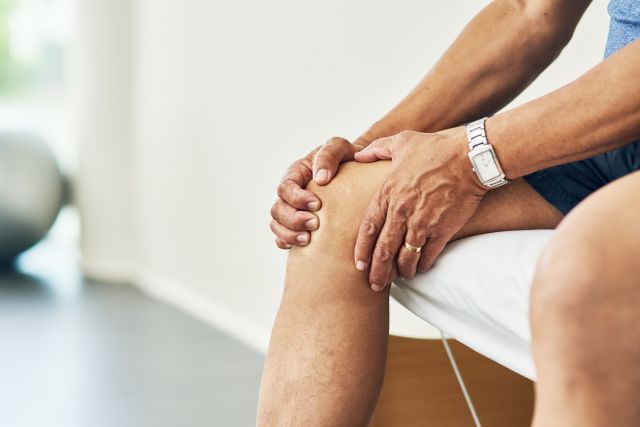Updated on September 24, 2024.
For people with knee pain, having surgery can be an all-too-common occurrence. About 750,000 people in the United States have minimally invasive joint surgery called arthroscopic surgery each year to repair a torn meniscus, the cartilage cushion inside the knee.
There are two types of procedures: partial meniscectomies and meniscus repairs. In a partial meniscectomy, a surgeon inserts instruments into the knee through small incisions to smooth rough edges, clear debris out of the joint, and remove any cartilage that’s getting in the way of knee function or causing pain. In a meniscus repair surgery, the tear is fixed with stitches.
While anyone could tear their meniscus because of injury or accident, some groups are at higher risk. Athletes are prone to tearing the cartilage cushion in the knee, known as the meniscus, because they often make quick, twisting motions, like turning swiftly to catch a ball. Age can be another cause, as menisci (plural for meniscus) weaken with age. And knee osteoarthritis, a disease that breaks down joint cartilage in the knee, can be another cause.
Meniscus surgery can be helpful, but it’s not a first-line treatment for most people, since there are several other effective treatments available. Research also shows that for many people, meniscus surgery doesn’t end up helping, or it doesn’t help long-term.
Failure rate
According to a 2022 systematic review and meta-analysis published in the Journal of Bone and Joint Surgery, about 20 percent of modern meniscal surgeries had failed five years after the surgery took place. Another 2022 systematic review published in the journal Knee Surgery, Sports Traumatology, Arthroscopy found that 19 percent of meniscus surgeries have to be revised—meaning redone—within just two years after the first surgery. Since surgery and recovery time can be expensive and time-consuming, it’s important to carefully consider these results when weighing treatment options.
Treatment options
And there are good alternatives to surgery. A systematic review and meta-analysis published in the British Journal of Sports Medicine in 2020 looked at what the data says about which types of patients should receive partial meniscectomies. They concluded that for people with a meniscus tear who don’t have osteoarthritis, the surgery may be slightly more helpful than physical therapy, but for everyone else, surgery is not necessarily recommended.
Some meniscus tears will respond well to a treatment with a nonsteroidal anti-inflammatory drug (NSAID), such as ibuprofen, followed by the RICE approach. RICE is an acronym for rest, ice, compression, and elevation. To follow this approach, don’t put any weight on the injured knee. Use ice packs on the knee frequently throughout the day for 20-minute intervals. Finally, to help reduce swelling, you can compress the knee with a bandage and elevate (raise) your leg higher than your heart.
And physical therapy can help your knee gain strength and get moving again through safe, directed exercises. It’s important to start them early and to progress through a variety of range-of-motion exercises to those focused more on strength. People being treated in physical therapy may benefit from doing sports that don’t put weight on the knees, like biking or swimming.
And for those who can’t have NSAIDs, whose pain does not improve with NSAIDs and physical therapy, or who may need to avoid surgery, hyaluronic or cortisone injections might offer some short-term relief. Hyaluronic acid is a gel-like substance injected into the knee that helps the joint move more smoothly. Cortisone injections decrease inflammation in the knee joint.
If you have knee pain, talk to your healthcare provider to find the remedy that’s right for you, whether it’s surgery, physical therapy, or even holistic therapies like meditation or joint friendly exercises.






